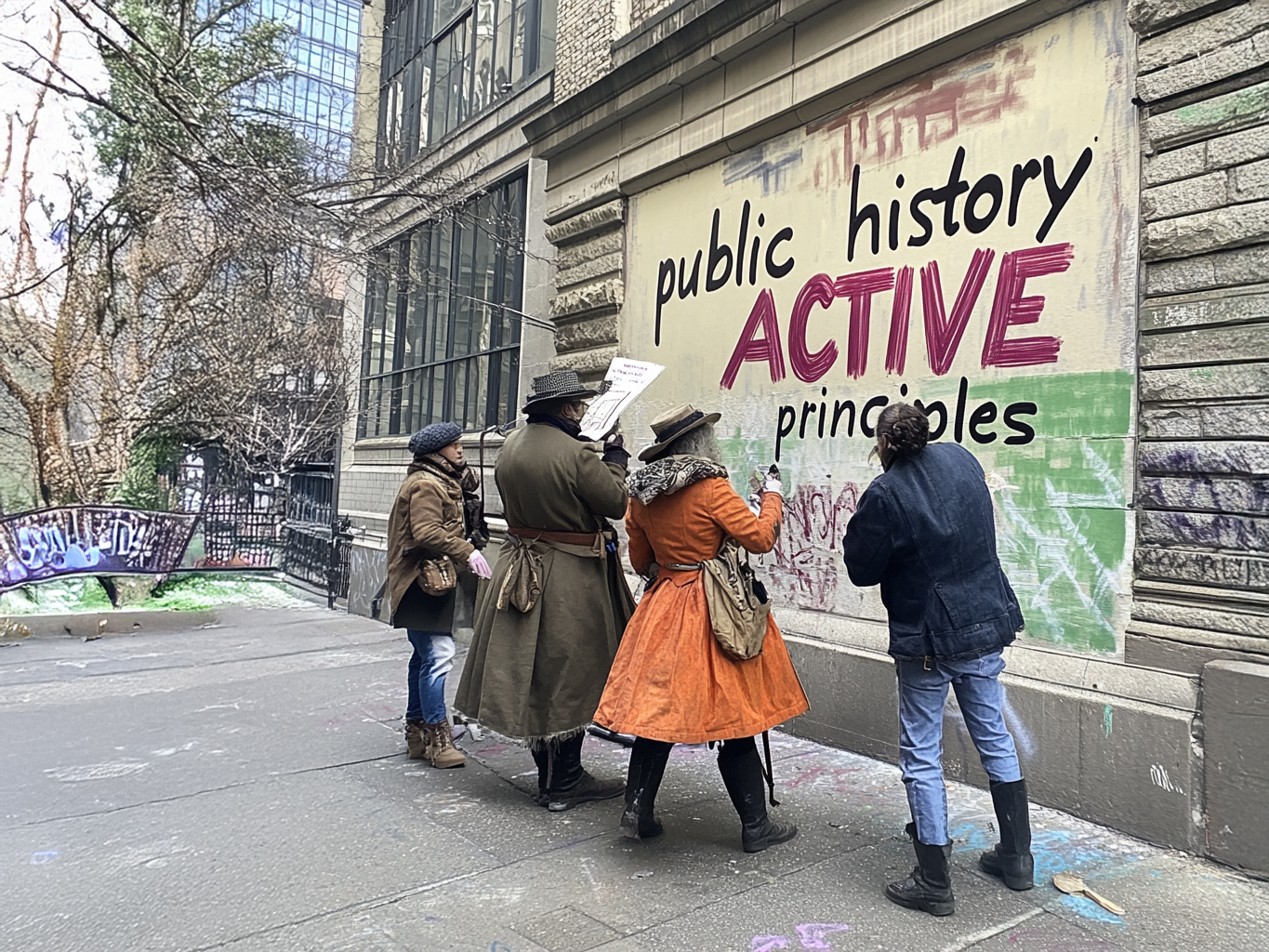Accessibility
We develop methods of historical research and produce preferably free and open access contents aimed at different types of audiences and publics. Our research (output) is available for use and reuse beyond the walls of academia, in the on- and offline public space.
Collaboration
We actively promote inter- and transdisciplinary projects with other disciplines (e.g. computer science, anthropology, arts, design, and others) and readily collaborate with different (cultural) institutions, as well as communication and media production agencies. In doing so, we encourage participatory practices (collaboration, contribution, coproduction) with the broader public.
Transparency
We communicate publicly about the objectives, mission, funding, audiences, users, and societal consequences of our research and its uses. We acknowledge the different partners and actors of our research as well as those who are absent or underrepresented in our projects. In the process we identify, address and engage with competing historical narratives at work in the public space.
Inclusivity
We aim to include minorities and marginalized groups and communities in our work and favor the presence of multiple voices, groups and partners in our research process. The resulting plurality of interpretations is critically assessed and contextualized.
Versatility
We adapt and develop ways for public partners and users to benefit from historical research. By sharing tools, access, and methodology, we contribute to the empowerment of groups and individuals. Examining the ways in which our research impacts communities is part of the process.
Engagement
We support engagement with members of the public in the collection, interpretation, and dissemination of evidence based historical research and share authority with them. Together we make engaged public scholarship happen.
